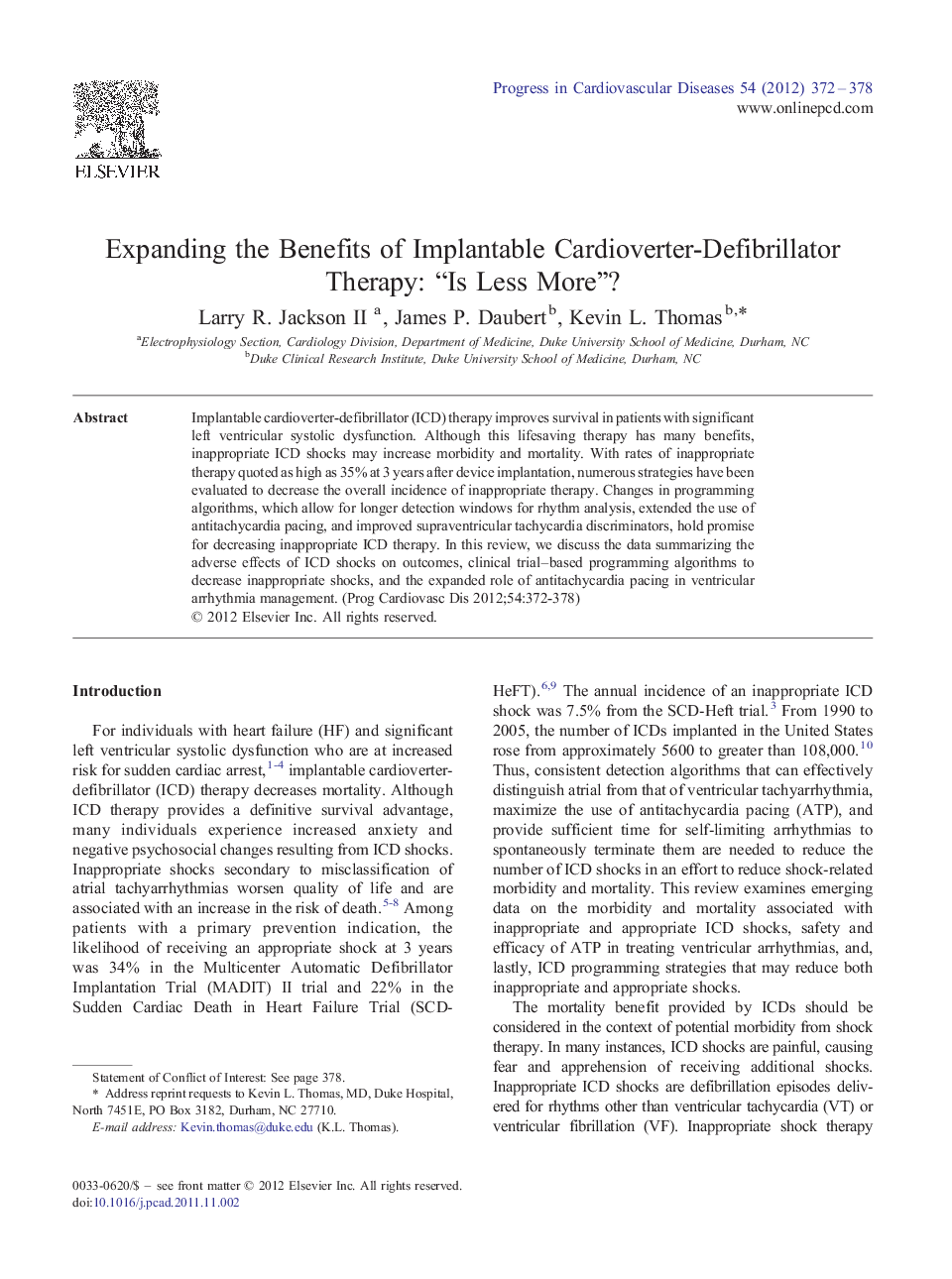| Article ID | Journal | Published Year | Pages | File Type |
|---|---|---|---|---|
| 3006338 | Progress in Cardiovascular Diseases | 2012 | 7 Pages |
Implantable cardioverter-defibrillator (ICD) therapy improves survival in patients with significant left ventricular systolic dysfunction. Although this lifesaving therapy has many benefits, inappropriate ICD shocks may increase morbidity and mortality. With rates of inappropriate therapy quoted as high as 35% at 3 years after device implantation, numerous strategies have been evaluated to decrease the overall incidence of inappropriate therapy. Changes in programming algorithms, which allow for longer detection windows for rhythm analysis, extended the use of antitachycardia pacing, and improved supraventricular tachycardia discriminators, hold promise for decreasing inappropriate ICD therapy. In this review, we discuss the data summarizing the adverse effects of ICD shocks on outcomes, clinical trial–based programming algorithms to decrease inappropriate shocks, and the expanded role of antitachycardia pacing in ventricular arrhythmia management.
